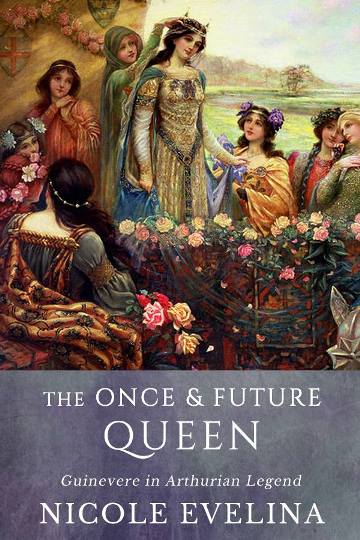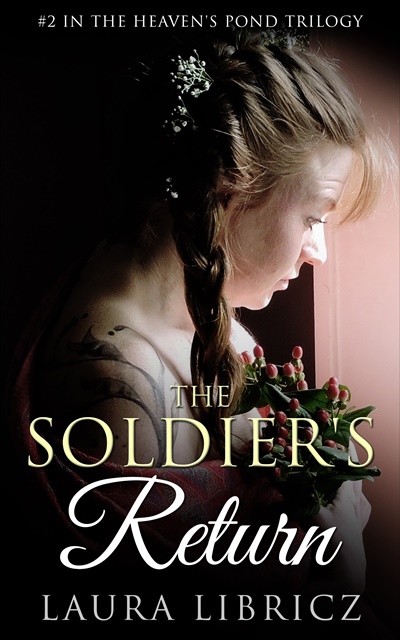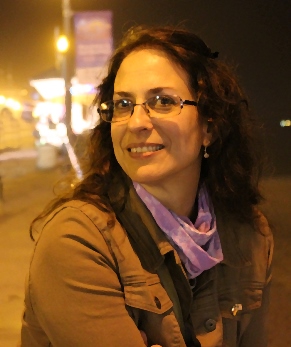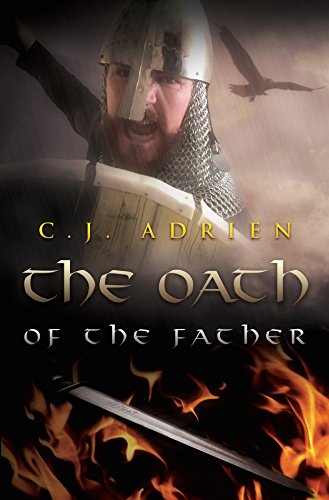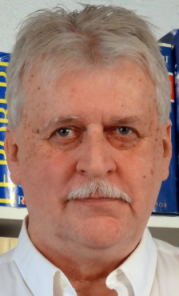Happy Book Release, Rebecca! I am thrilled to have you visit with us today.
What inspired you to The Secret Life of Mrs. London?
I live on a lavender field in Sonoma Valley, which Jack London named Valley of the Moon, and wrote 50 novels, including The Valley of the Moon. I have hiked or ridden horses over most of Jack and Charmian London’s Beauty Ranch, which is now Jack London Park. I was always inspired by their adventuring spirit and philosophy of living life to the fullest. When I discovered the Houdini love triangle with the Londons, I knew the story was too juicy to resist!
What was the hardest scene to write?
I can’t really tell you, because it is a major turning point in the novel. The scene that changes EVERYTHING for Charmian London and propels her to actions she would have never taken before. It changes her life forever.
What was your favorite scene to write?
Writing Houdini’s amazing feats of magic and escapes brought me back to that era of the early 1900’s when this astounding man created impossible tasks for himself, and performed them on the vaudeville circuit. Can you imagine what people thought when he was nailed into a crate with wrists and ankles shackled and thrown into the ocean to escape? Or what about when Houdini dangled from 30 story building, upsidedown, trussed into a straightjacket? Or made a 5 ton Jenny the elephant disappear before the eyes of 7000 people in the Hippodrome of New York City? Houdini was the most mysterious and brave man I have ever heard of.
What would you like readers to take away from reading The Secret Life of Mrs. London?
There are some very provocative issues raised in The Secret Life of Mrs. London. I hope these issues will spur discussion and thought between readers. Some of the issues: Fidelity in a marriage that does not give you what you need. How much energy and time do you devote to your own goals versus your husband’s goals? What is it like to live with a driven genius like Jack London or Houdini? How far are you willing to go for love? What happens if you fall in love with your friend’s husband?
How much of The Secret Life of Mrs. London is fiction and how much is based on fact?
I would say 95% is fact, meaning 95% of what happens in the novel really happened. I condensed the timeline from 5 years to 3 years to make it more exciting to read. Houdini is the mysterious one… he kept his feelings “close to the vest”, revealing only, that he “was having difficulty in his private affairs of late”. It was Charmian London who revealed the affair in her dairies. And even Bess Houdini, who discovered letters after Houdini died.
What began your fascination with Harry Houdini?
Who doesn’t love Houdini? Houdini is magic, mystery, courage, a mastermind of focus, in total command of his body, mind, and the awe he creates around him.
Did you find anything in your research that surprised you about Houdini or his life?
There are secrets revealed about the Houdinis in my novel that hardly anyone has known in the past. These secrets touched me to the core, and made me understand the Houdinis and why Charmian and Houdini had an affair.
When did you know you wanted to be a writer?
About 7 years ago, I started writing a novel about the Silver Queen of Colorado, Baby Doe Tabor, a story I knew as a child growing up in Denver. I was hooked! It is so gratifying to discover women who lived before us, that through pure gumption made something thrilling of their lives!
What has been your greatest challenge as a writer? Have you been able to overcome it?
My challenge is making quiet time to write. I get up at 4am, light candles, make coffee and start to write before the day begins. Then I can hear what my characters want. They always want something impossible!
Who are your writing inspirations?
Lately, I’ve been inspired by my other Lake Union Authors who all balance the tightrope of writing a great novel, and having time to connect with readers! Oh, yeah, and there are families to pay attention to, also!
What was the first historical novel you read?
Gone With the Wind—my favorite novel of all time, which I could always reread.
What is the last historical novel you read?
I am reading many novels to get into 1800 France for my new novel, Champagne Widows. Madame Tussaud, by Michelle Moran, The Girl Who Fought Napoleon, by Linda Lafferty, Becoming Josephine by Heather Webb.
If there was a soundtrack for your novel, what songs might we find on it?
Scott Joplin, Ragtime!
What are three things people may not know about you?
1. I have a lavender farm in Sonoma Valley.
2. Our farm, barn and house burned in the Sonoma Fires in October, last year, just like Jack London’s Wolf House did!
3. We are replanting and rebuilding as we speak!
What appeals to you most about your chosen genre?
I love discovering women who have lived before us and paved the way for the freedom and opportunities we have today. I want to tell their stories, even if their stories raise uncomfortable issues.
What do you like to do when you aren't writing?
I am traveling to the Champagne region of France to research my next novel, Champagne Widows! The story of the twenty four year old widow who, against her father, father in law, and Napoleon himself, preserved with her champagne winery to make it the most reknown champagne throughout Europe.
Oh wow, that sounds like a fabulous book! I cannot wait! Thank you so much for answering some questions for me. I will be posting my review of this book soon, and if you've read it and loved it, don't forget to leave a review on Amazon or Goodreads!
The Secret Life of Mrs. London by Rebecca Rosenberg
Publication Date: January 30, 2018
Lake Union Publishing
eBook & Paperback; 348 Pages
Genre: Historical Fiction
As Charmian grapples with her urge to explore the forbidden, Jack’s increasingly reckless behavior threatens her dedication. Now torn between two of history’s most mysterious and charismatic figures, she must find the courage to forge her own path, even as she fears the loss of everything she holds dear.
Amazon US | Amazon UK | Amazon AU | Barnes and Noble | IndieBound
Praise for The Secret Life of Mrs. London
“The Secret Life of Mrs. London is a heart-wrenching portrait of a marriage between two people who utterly depend on one another, but ultimately aren’t enough for each other. With skillful precision of language, Rosenberg weaves a narrative that defines the complexities of love, passion, and art. This is a perceptive, deeply moving novel by a great new talent about a couple who has gone unnoticed in historical fiction until now. Anyone who has ever loved another person will want to read this book.” —Victoria Kelly, author of Mrs. Houdini: A Novel“One of Houdini’s best kept secrets was his affair with Charmian London in 1918. Now Rebecca Rosenberg tells the story using an elegant blend of fact and fiction, creating a Houdini book like no other. The Secret Life of Mrs. London is a true peek behind the curtain and a page-turner.” —John Cox, Wild about Harry
About the Author
 A California native, Rebecca Rosenberg lives on a lavender farm with her family in Sonoma, the Valley of the Moon, where Jack London wrote from his Beauty Ranch. Rebecca is a long-time student of Jack London’s works and an avid fan of his daring wife, Charmian London. The Secret Life of Mrs. London is her debut novel.
A California native, Rebecca Rosenberg lives on a lavender farm with her family in Sonoma, the Valley of the Moon, where Jack London wrote from his Beauty Ranch. Rebecca is a long-time student of Jack London’s works and an avid fan of his daring wife, Charmian London. The Secret Life of Mrs. London is her debut novel.Rebecca and her husband, Gary, own the largest lavender product company in America, selling to 4000 resorts, spas and gift stores. The Rosenbergs believe in giving back to the Sonoma Community, supporting many causes through financial donations and board positions, including Worth Our Weight, an educational culinary program for at-risk children, YWCA shelter for abused women, Luther Burbank Performing Arts Center to provide performances for children, Sonoma Food Bank, Sonoma Boys and Girls Club, and the Valley of the Moon Children's Home.
For more information, please visit Rebecca's website and blog. You can also find her on Facebook and Goodreads. Visit the Facebook page for The Secret Life of Mrs. London.
Blog Tour Schedule
Tuesday, January 30Review at A Bookaholic Swede
Wednesday, January 31
Interview & Giveaway at Passages to the Past
Thursday, February 1
Guest Post at Let Them Read Books
Feature at What Is That Book About
Friday, February 2
Review at View from the Birdhouse
Feature at Historical Fiction with Spirit
Monday, February 5
Review at Creating Herstory
Tuesday, February 6
Review at Planting Cabbages
Wednesday, February 7
Review at A Bookish Affair
Thursday, February 8
Interview at Planting Cabbages
Friday, February 9
Review at Bookish
Sunday, February 11
Review at Carole's Ramblings
Monday, February 12
Review at Cup of Sensibility
Tuesday, February 13
Review & Giveaway at The Maiden's Court
Wednesday, February 14
Review at Donna's Book Blog
Thursday, February 15
Review at Jorie Loves a Story
Friday, February 16
Guest Post at Short Book and Scribes
Monday, February 19
Review at Reading the Past
Tuesday, February 20
Review at The Lit Bitch
Friday, February 23
Review at Pursuing Stacie
Review at History From a Woman's Perspective
Monday, February 26
Review at Back Porchervations
Tuesday, February 27
Guest Post at My Reading Corner
Wednesday, February 28
Review & Giveaway at Suzy Approved Book Reviews
Thursday, March 1
Review at What Cathy Read Next
Friday, March 2
Review at Svetlana's Reads and Views
Monday, March 5
Review at Caryn, the Book Whisperer
Tuesday, March 6
Review at Bookish Beck
Giveaway
Passages to the Past is giving away a paperback copy of The Secret Life of Mrs. London! To enter, leave a comment below and please include your email address or alternate way to contact you if you win.Giveaway Rules
– Giveaway ends at 11:59pm EST on March 3rd. You must be 18 or older to enter.
– Giveaway is open to US residents only.
– Only one entry per household.
– All giveaway entrants agree to be honest and not cheat the systems; any suspect of fraud is decided upon by blog/site owner and the sponsor, and entrants may be disqualified at our discretion.
– Winner has 48 hours to claim prize or new winner is chosen.




